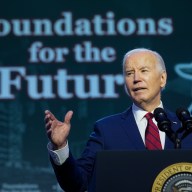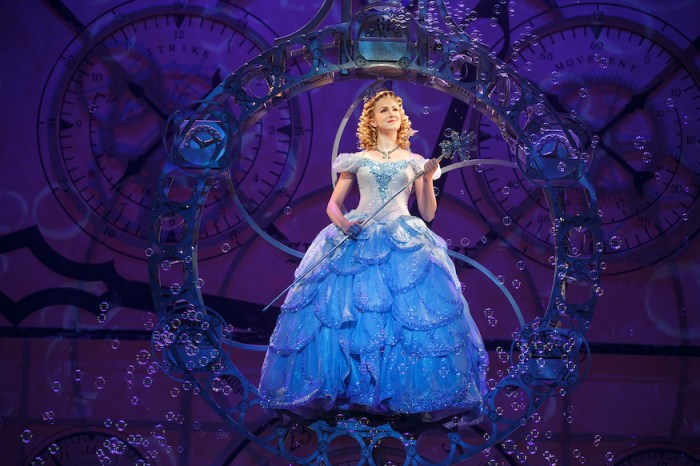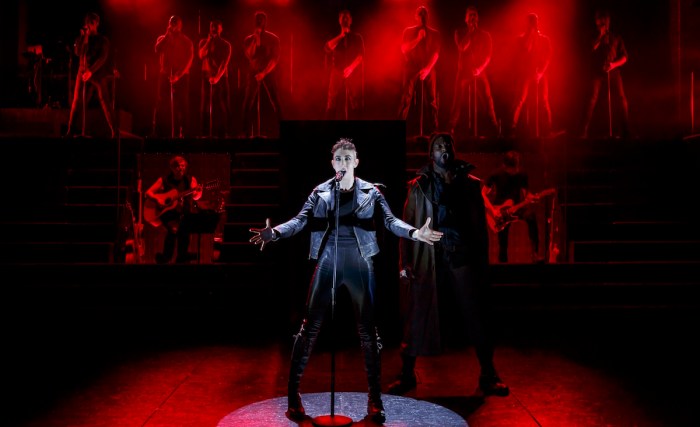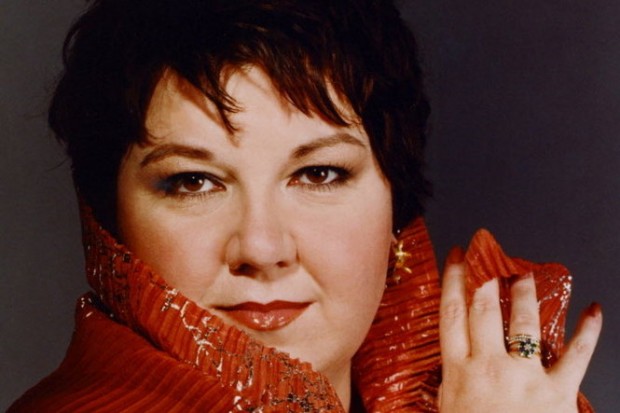When it comes to your chosen religion, how much of what you practice reflects who you really are? The disparity of what we preach and what we sometimes do is center stage in SpeakEasy’s current production “Grand Concourse,” playing through April 1. Sister Shelley finds her work at a Bronx soup kitchen to be rewarding and on-brand, but finds herself questioning her calling when a newcomer volunteer puts her personal life into perspective.
“Shelley’s first line in the play is, ‘I’m stuck,’” explains actress Melinda Lopez, who takes on the role in the BridgetKathleenO’Leary-directedproduction. “I think she’s in a place in her life where she’s asking, ‘Is there something more?’ Sometimes people who are satisfied with work, wake up, and realize nothing is working anymore. For Shelley, in a religious vocation, it’s one-upped with a question of faith — but that’s not what this play is about. It’s deeper than that.” We chat with Lopez, who is fresh off the acclaim of her ArtsEmerson production “Mala,” and is the current playwright in residence at the Huntington. She speaks to her character’s off-stage dilemma and considerations that go into playing an extremely self-aware character. What’s the tipping point for Shelley that causes her to have this crisis of confidence?
There are off-stage issues with her family, which is very clear is dysfunctional, and her father is not well. And instead, she’s taking care of other people, not him. So she’s conflicted. She feeds the homeless and is not doing right by her family and she knows that. Would you consider Shelley a character who is self-aware?
Yes, painfully so — it’s paralyzing. This idea of self-sacrifice and service where we can wear a mantle of holiness but in fact we’re doing it for all the wrong reasons. The play centers on forgiveness and why we forgive. Is it just because it’s easier than actually dealing with our own pain that we can bury it? I can’t think of any play that does that addresses forgiveness in a way that feels intensely familiar to me. That’s why I was really excited for the script. I feel like I come across my own failures to forgive and move forward. I sometimes assume [that makes] me a bad person, but the play really questions that. Maybe you’re not a bad person. Maybe there are things that can’t be forgiven. You’ve had a busy year — and going from one introspective production to another; how did you emotionally and professional prepare?
It takes a toll on my family and I couldn’t do it without a lot support. But it’s also my job. So you do you job, get drained and then you find ways to fill up your reserve. I think anyone who works or takes care [his or her] kids can identify with that. That’s what’s so recognizable about Shelley. She doesn’t love her work anymore, and I’ve definitely had those moments, too. But I’m not going to suggest an actor’s life or an artist’s life isn’t privileged. It’s a privilege to do what I love. But sometimes, I’m really tired. [laughs] I think I try to do what I can to take care of myself and fill my life with a lot of love. If you go:
Through April 1
The Roberts Studio Theatre
527 Tremont St.
Tickets start at $25, speakeasystage.com
SpeakEasy’s ‘Grand Concourse’ challenges forgiveness, religion
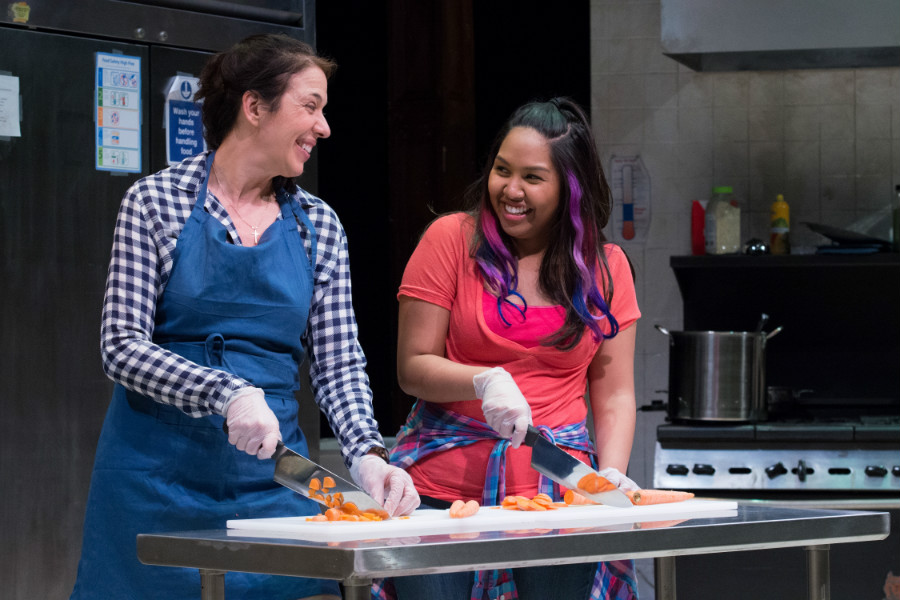
Glenn Perry Photography










